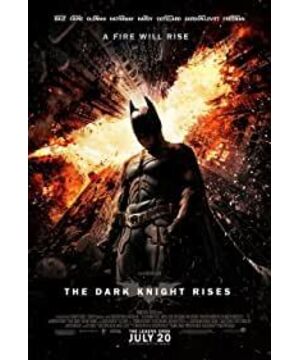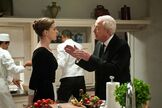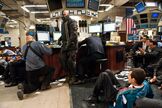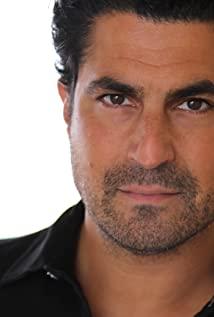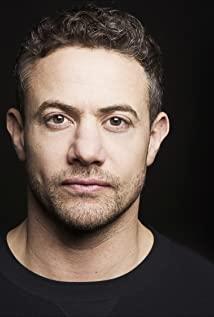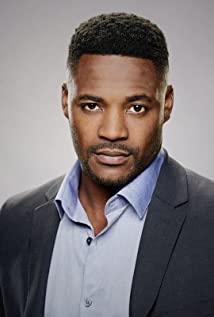Batman has always had only one rule, don't kill. On top of that, he would lie, he would use violence to knock information out of suspects, and he was the greatest detective in the world. In TDK, he is the Dark Knight, because he is willing to sacrifice his reputation to preserve the imagination of the white knight Harvey Dent. But it was a lie, and he dug another layer into the darkness. He demanded from the darkness and kept digging. What TDK asks is how much he is willing to sacrifice for Gotham, and TDKR asks about the results of those sacrifices.
I love Nolan's handling of this, where he lets the audience face the truth with Batman: what do you think awaits you at the end of the black tunnel? A complex opponent like a clown, a clown who thinks it's fun to play against you while joking? No, that's just the story, the real evil isn't that complicated, it can't think, but it's much crueler than that. You have no rules, you lie, and you will meet a self who ignores the rules more than you and just wants to destroy. You'd rather die at your own hands.
I understand Bane in TDKR as Batman's evil twins, they are so similar. They've all been in that desert prison pit, and they've all believed in what they thought they believed, and they're desperate for it. After Batman removes the light, Bane beats him and says, "You think the darkness will protect you? But I was born in the dark...I see the light, but I'm blind." Many heroes think they can match up with someone who was born in the dark. Creatures fight by the rules of the shadows, and they use their eyes to adjust to the darkness until they lose their judgment. The bat probably shouldn't have gone there, he has another way to go.
My favorite detail in TDKR is Ah Fu talking about his vacation. The old housekeeper said that in the years when Bruce disappeared, he would go to Florence for vacation every year. He would imagine that he would see Bruce put aside his anger and live with his wife. At that time, he would look at Bruce and smile without saying a word. For me, Ah Fu in TDKR is like a character with a god-like perspective. He watched Bruce be born, he watched him become gloomy, angry to the core, and he couldn't allow himself to be happy - he just wanted Bruce to come out of the shadows, he was calm and wise, and even told Bruce Bane that he couldn't be the mastermind . He burns Rachel's letter so that Bruce doesn't suffer or suffer, yet he's the first character to leave Lie, and after that he wants to reconcile. I associate Alfred with many Christian traditions, but Nolan is likely an atheist, so these are just my projections of the story.
So Batman lost to Bane and was dragged into the desert prison pit. People climb toward the exit with only a circle of light, and I really like this shot, just because it's amazing. Bain's comment on the insurmountable jump near the well's mouth was: False hope is so cruel. Hope was equivalent to false hope in his eyes, a classic lie and a big enough lie. Ever since Batman fell into prison, I've wondered how he got out, maybe that wall wasn't for one person to climb, maybe a few prisoners could get to the top together. I really like Nolan's answer that you don't need to use a rope to climb, just listen to the song.
Bruce had to think about what he was afraid of as he climbed, and what was he not afraid of in the end? He was at first not afraid of dying on his way into the dark, but eventually he was not afraid of dying as he climbed up. It's hard, but easy, and when a man really decides there's nothing to hold on to in the dark, he threw off the ropes and went out. In the comics, Batman's biggest tragedy is that he can never save Gotham, nor allow it to be destroyed, and has been eating himself in a sense of powerlessness. Nolan let him go out in the movie and stop being the dark knight, which is not faithful to the original book. But I appreciate that he does things the bats in the comics can't.
Finally, discuss the shortcomings of the narrative. Before watching it for the second time, I was wrestling with whether TDKR's pacing was actually a problem, or if I imagined it was, and my first impression was that Taria's character was too short. And then is the revolutionary line too short? Watching it again, I found that neither was a problem. The first point of writing a story is to know whose story you are writing. The protagonists of TDKR are Batman, Catwoman and Robin. In addition, the theme is the rebirth of Batman himself, and the villain symbolizes absolute destruction. Ah and Bane's scenes shouldn't have started. They may not even have language. As for the revolutionary line, will Bain have his political views? Maybe the citizens of Gotham will see a long speech. My bias is that those aren't worth showing to the audience because that's not what the story is about.
Anyway, I did find a problem that was hard to ignore. Do viewers remember the name of the police officer who wanted to kill Batman, and the Wayne board member who traded with Bane and was killed, Taria's pseudonym, the doctor who helped Batman get back on his feet...their names are true It happened, but it's hard to remember. Once the names are unclear, the characters themselves are also conceptualized by the audience. Maybe they don't need to be remembered, but in BB and TDK, the audience remembers each character clearly and effortlessly, like the mob boss's name is Filcony, and Rachel's prosecutor's boss is Finch...
so This is the finale of the trilogy, thick and hopeful. What I like most about Nolan is that no matter what kind of film he makes, whether it's a large-scale commercial or a small literary film, he always treats it equally and digs to the bottom. The question that arises from the darkness discussed by TDKR would not have been asked without the exploration of the first two films. I have written a similar plot, and my experience is that maybe the last step is to turn around and walk, and it seems easy to jump, but it is difficult to get to this step.
View more about The Dark Knight Rises reviews


